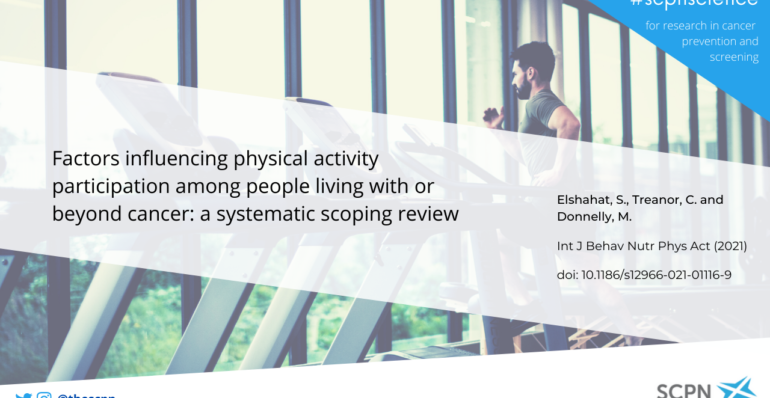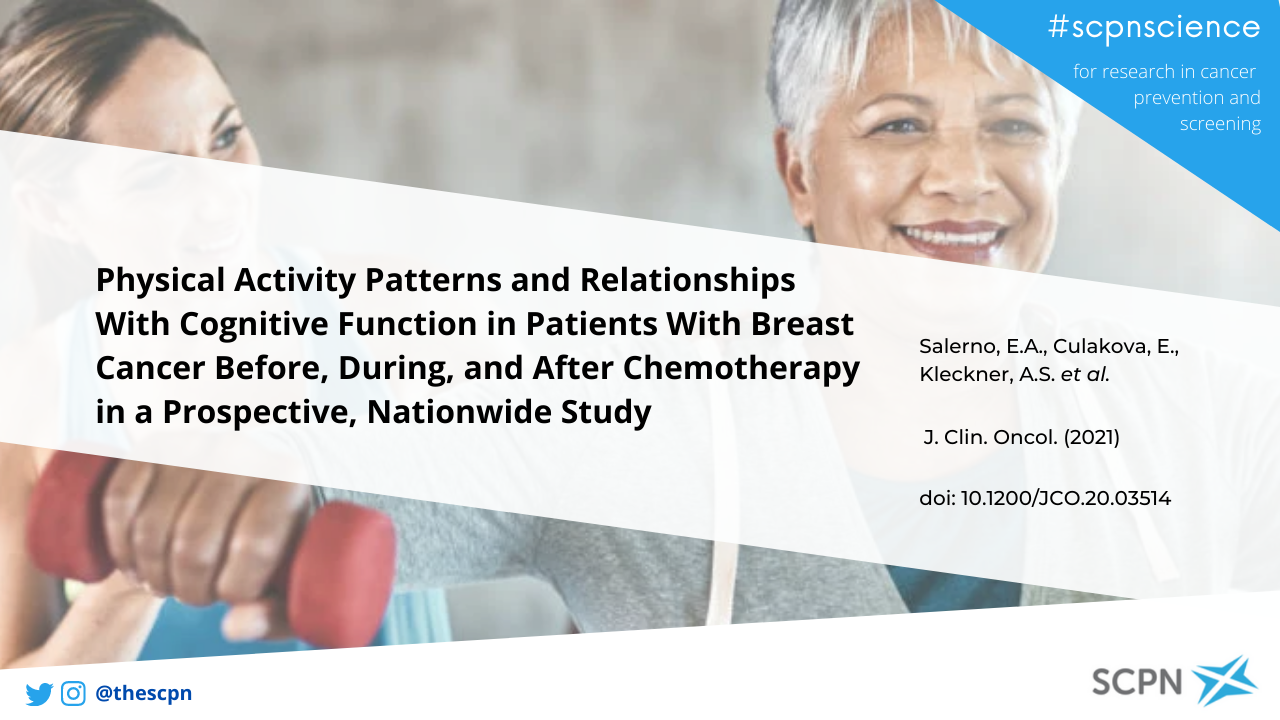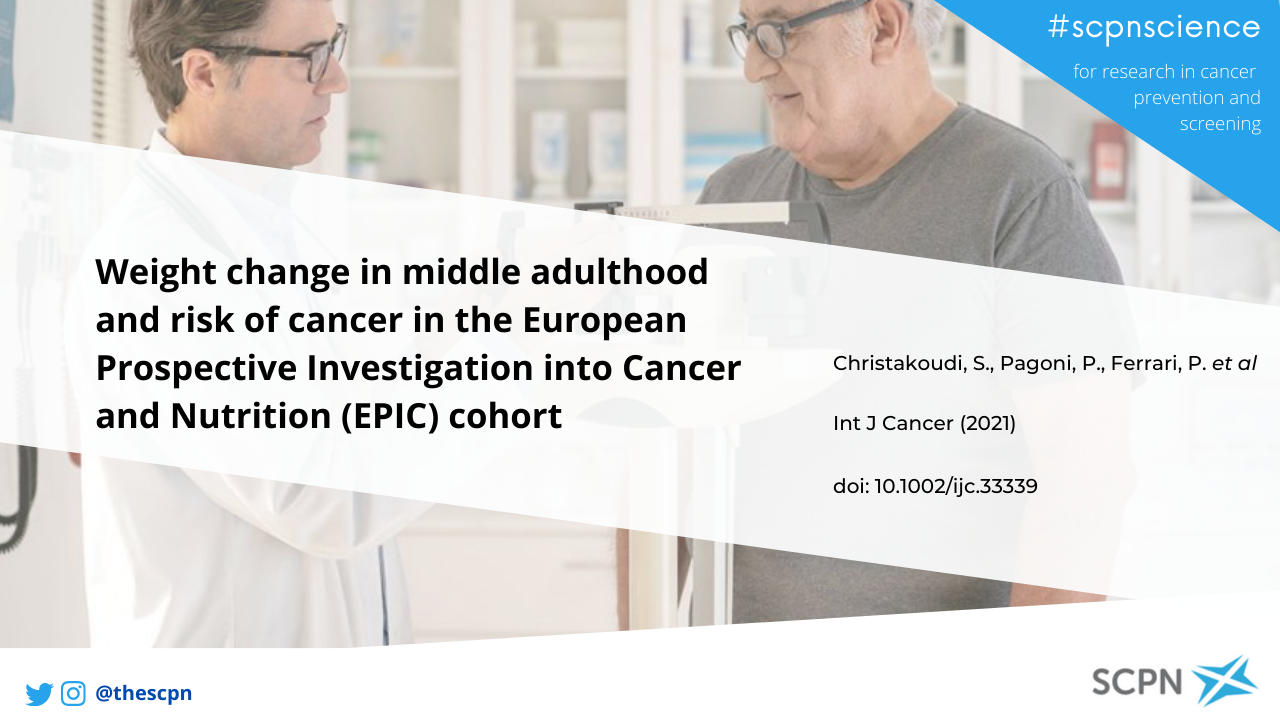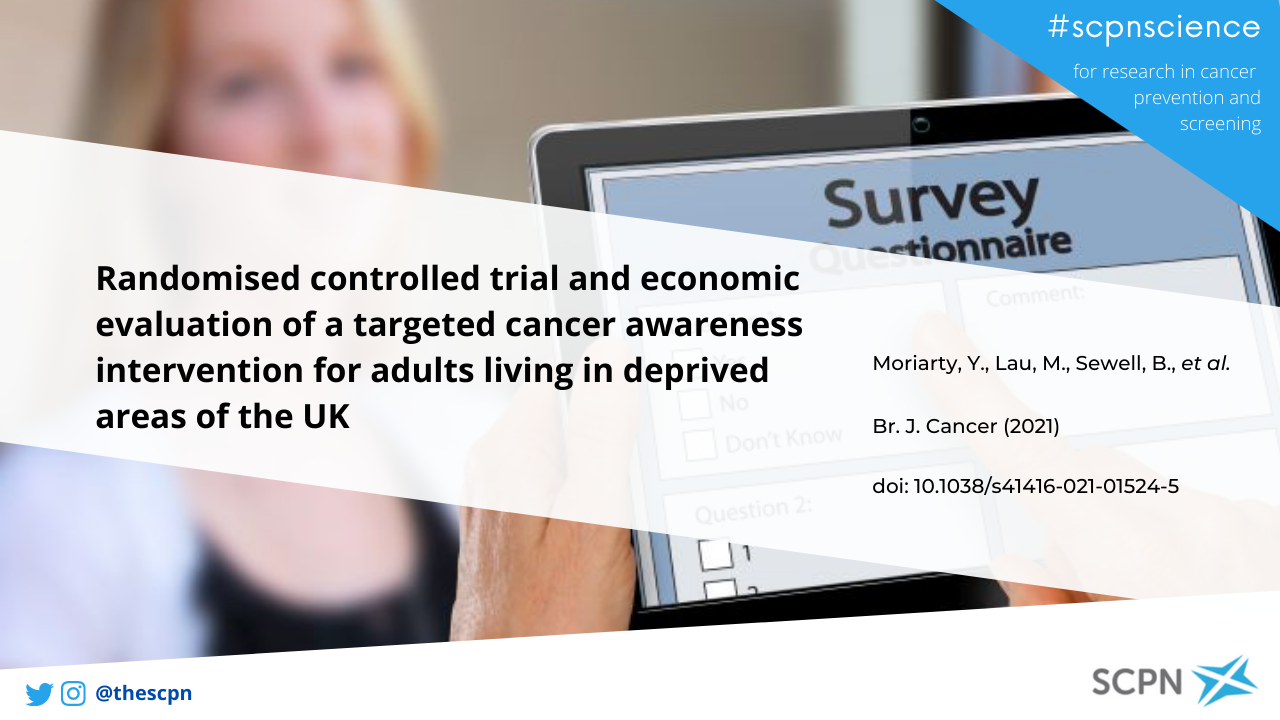
Research Round Up

16 Nov 21 |
If you have paid attention to our #scpnscience twitter posts over the last few months, you’ll have seen there has been some fantastic research published since our last e-digest! Here is a round-up of published articles we have found interesting at the SCPN.
This research lays the groundwork for future clinical trials aimed at investigating whether moderate to vigorous exercise can ward off what is commonly referred to as “chemo brain,” a decline in cognitive function many breast cancer patients experience. Cancer-related cognitive decline is an important clinical problem for which interventions are needed. Physical activity is a promising intervention; however, its use in patients undergoing active treatment is limited. This study aimed to investigate timing and dose of physical activity in a large nationwide, prospective cohort study in patients with breast cancer as well as its relationship to cognitive function. Salerno and colleagues reported that physical activity in patients declined during chemotherapy before recovering to pre-treatment levels six months after chemotherapy completion; however, most patients remained insufficiently active. More physical activity pre-chemotherapy, and adhering to national physical activity guidelines during chemotherapy, were associated with better cognition over time.
At the SCPN we are always highlighting the role of obesity as a well-known risk factor for multiple cancers. But what about gaining or losing weight mid-life? In this study, Christakoudi and colleagues investigated the association between cancer and change in weight and BMI category during mid-life. Among 241,323 people, about a third gained weight and 20% lost weight over a 7 year period. Gaining weight was associated with several obesity-related cancers including cancers of the gallbladder, uterus, ovary, kidney, thyroid, breast after the menopause and in men pancreas, and these were independent of starting weight. Losing weight was inversely associated with obesity-related cancers overall, and specifically cancer of the colon and uterus. The authors conclude that public health interventions to support weight loss in middle age could help reduce cancer incidence.
This follow-up study of the Women’s Health Initiative trial in the US adds to the body of evidence supporting the role of diet in breast cancer incidence. In the Women’s Health Initiative Dietary
Cancer outcomes are poor in socioeconomically deprived communities, with low symptom awareness contributing to prolonged help-seeking and advanced disease. Moriarty and colleagues looked at the effectiveness of a new health check intervention (ABACus Health Check), involving an interactive touchscreen questionnaire about common cancer symptoms, cancer screening and risk factors (smoking, alcohol, diet and activity) with personalised results, support and advice delivered by a trained lay advisor drawing on a number of behaviour change techniques in adults aged 40 years and older living in socioeconomically deprived areas in England and Wales. Differences in total symptom recognition were not observed at short-term follow-up, but there was evidence of longer-term knowledge retention and shorter intended presentation among participants who received the intervention. Given that inequalities in cancer survival exist in the UK, this intervention has the potential to achieve public health benefits by encouraging cancer awareness and earlier presentation in socioeconomically deprived communities.


